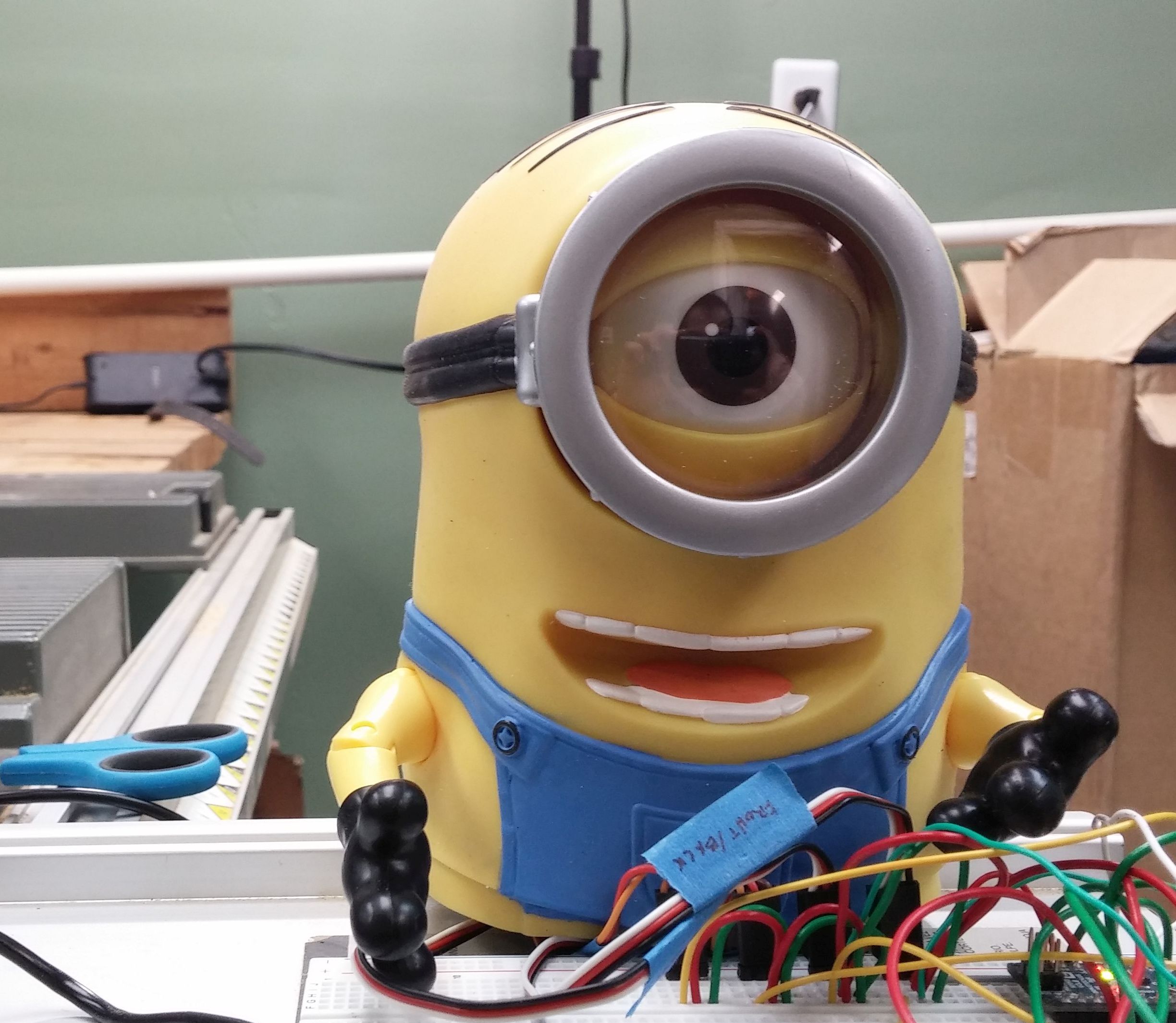Hack These Cool Off-the-Shelf Toys into Robots
There’s a long tradition of hacking toys to make robots. Why settle for what some manufacturer designed? Add a microcontroller to an R/C car and you have an instant self stopping robot car. Stick some RFID electronics in a teddy bear and suddenly it can respond to objects around it. Hacking is all about taking something and making it do what the designer never intended.
The Toys
Here’s a collection of toys ripe for hacking. I limited the list to recently released or at least currently available toys. Try the ideas here or take them further with your own. What’s your next robot hack going to be? Tell us about your favorite toy hack in the comments!
COMBAT CREATURES ATTACKNID
 Jaimie’s custom paint job in yellow, and an unpainted Spider Tank.
Jaimie’s custom paint job in yellow, and an unpainted Spider Tank.
(Photo credit: Jaimie Mantzel)
The Attacknid six-legged remote control “combat creature,” invented by Jaimie Mantzel, is one of the coolest and most hackable toys around. It’s been on the market for a while, and there have been quite a few hacks posted.
You can add a camera and use the existing remote to make a motion-sickness-inducing telerobot. Or add a sonar or other range sensor along with motor drivers and a microcontroller to set the Attacknid free to roam and terrify the house pets autonomously.
 Attacknid with Death Ray Laser by StyroPyro.
Attacknid with Death Ray Laser by StyroPyro.
YouTuber and laser enthusiast Drake Anthony (aka StyroPyro) memorably added a laser “death ray” capable of popping balloons to his Attacknid.
Remote control drone enthusiast Les O’Dell integrated a quadcopter onto the Attacknid. He does manage to lift off, though I don’t think sustained flight is really practical. He gets points for awesomeness, though.
BAYMAX FROM BIG HERO 6

Baymax Armor-Up toy: Ripe for hacking.
Right on top of my most wanted list was a hack of a Baymax toy from the movie Big Hero 6. Lots of Makers and robot enthusiasts really loved this movie, so I figured it would be easy to find someone who had hacked one, right? Well, no.
Search though I did, I could not find one decent Baymax hack.
Undeterred, I started looking at different Baymax toys to try to find the most hackable one. I settled on the Baymax “Armor-Up” action figure, which comes as Baymax in his healthcare-mode white, and 20 beautiful red and purple armor pieces. The armor snaps in place to convert Baymax to his big, bad, crime-fighting mode. Essentially, you get a whole extra Baymax worth of snap-on armor, even a new head with the face inside.
With a little imagination and some hot glue, it is easy to see how servos could be fit inside to actuate the armor. Without the white Baymax inside, the armor shell is capacious. The pictures below give an idea of how the servos might fit to control the head, arms, and legs. I haven’t tried it yet, but I plan to. However, I’d be happy to see someone beat me to it. I just want to see this hack done well!




DESPICABLE ME MINIONS

I loved the Despicable Me movies, and I just can’t wait until the Minions prequel comes out this July.
Three different Minions — Stuart, Dave, and Tim — are available as talking toys. When you press the button beneath their overall chest pocket, they turn on and make sounds or speak in their gibberish “Minionese.”
The best thing about them is that you can trigger these sounds by moving their heads back and forth or from left to right. The soft skin, which feels like silicon rubber, contorts with the motion to change their facial expressions. The eyes (or eye, in Stuart’s case) move left and right and the eyelids blink.
There was not enough room inside Stuart to add the servos to the original mechanism. So I yanked most of it out and stuffed two standard servos inside the body and two mini servos in the head. The body servos control the forward and back, and left and right motions. The mini servos in the head control the eye and eyelid movement. An Arduino Nano controls everything.
I added two more mini servos to the body, and Stuart’s previously poseable arms could now move up and down under my control. I re-used the original sound board, triggering a random sound each time Stuart moves. I’d like to add more behaviors, integrate the electronics better, and replace the original sound board with one that lets me control which sound is made. Still, I’m very happy with this hack. You can learn more about it here.
Source:Makezine



